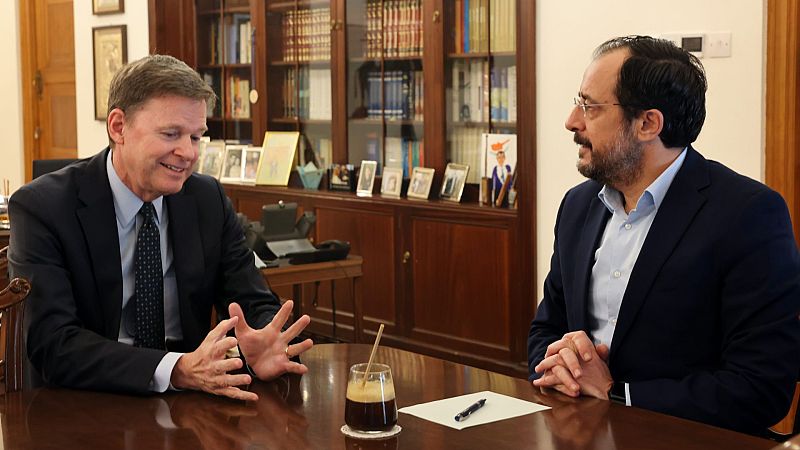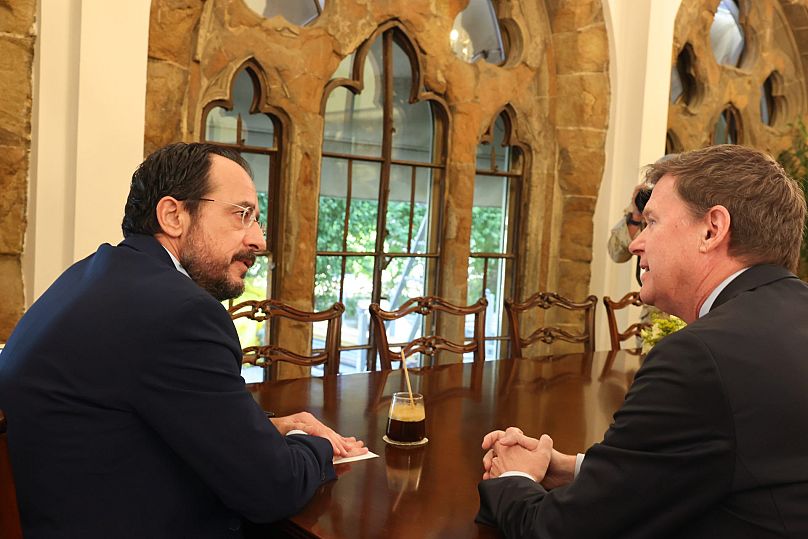UN special representative expresses disappointment at talks' progress upon departure from Cyprus

Outgoing UN Special Representative for Cyprus Colin Stewart criticised both Greek and Turkish Cypriot leaders for lacking the political will to find common ground, delivering a sharp parting assessment Monday that drew immediate rebuke from both sides.
"A fundamental requirement is the will to find common ground, and that is different from trying to win or trying to impose your point of view," Stewart said.
"One thing I found disappointing was how little they (the two sides) had in common, compared to the official views of the two sides."
Stewart added that "people in Cyprus have a lot in common" and "don't have any problems with each other."
He said that "millions of people a year" pass through the crossing points from north to south and vice versa, "but what is required is the will to find a solution that is mutually acceptable."
Cyprus has been divided since 1974, when a Greek-backed coup triggered a Turkish military intervention.
The Republic of Cyprus which encompasses the southern two-thirds of the island, is internationally recognised and an EU member state, while the breakaway entity in northern Cyprus remains recognised only by Turkey.
The UN has maintained a peacekeeping force in Cyprus since 1964.
Director of Cyprus President Nikos Christodoulides' press office Victor Papadopoulos openly disagreed with Stewart's view.
"I cannot say that we share such assessments. We are all bound by UN resolutions, and UN representatives are bound by UN and UN Security Council resolutions," Papadopoulos said.
"Everyone knows ... that Ankara holds the 'key'," he added.
Turkish Cypriot leader says Stewart 'undermined' impartiality
Turkish Cypriot leader Ersin Tatar lashed out at previous statements given to local media, which he said were "incompatible with the impartiality of the UN’s mission."
The UN representative had told Cypriot newspaper Phileleftheros that "first of all, there are not many people in the north who take a two-state solution seriously."
"There is no scenario under which the north will turn into an independent state recognised by the international community. That is not going to happen,” he continued.
Turkish President Recep Tayyip Erdoğan has repeatedly promoted the idea, urging the international community to recognise the island's division.
Tatar reacted by saying "The Turkish Cypriot side will remember (Stewart) as an official who, during his term, failed to fulfil his responsibility to increase trust between the two sides, undermined the perception of impartiality on some critical issues."
"In particular, (he) failed to show the necessary sensitivity to the legitimate humanitarian demands of our people," Tatar added.
“The Turkish Cypriot side has repeatedly and clearly demonstrated its will for a solution. This vision is shaped by the reality of two separate peoples, two separate democracies, and two separate states in Cyprus."
"A lasting and just solution in Cyprus is only possible by taking the current reality as a basis,” Tatar concluded.
It is not yet known who will replace Stewart in his now vacant role.
Today


